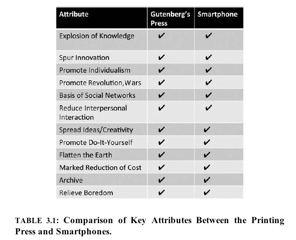Jumpstart wrote:There are many people of all races and cultures who work their way out of poverty.
That is a total myth, if you are born poor you will statistically stay poor. But before I expose that I must say that I support any legislation or measure that reduces consumer consumption of animals no matter what. That is I would support any limit of the poor, rich or anyone else to consume meat or milk products, since I don't believe in negative consumer freedoms.
I think what we see in this thread is baby boomer mentality. Most the wealth if you look at the age groups, is held predominately by baby boomers and each successive generation has only ended up poorer than the one before it.
http://www.sciencedaily.com/releases/20 ... 115517.htm
In a groundbreaking study, Johns Hopkins University researchers followed nearly 800 Baltimore school children for a quarter of a century and discovered that their fates were substantially determined by the family they were born into.
"A family's resources and the doors they open cast a long shadow over children's life trajectories," Johns Hopkins sociologist Karl Alexander says in a forthcoming book, The Long Shadow: Family Background, Disadvantaged Urban Youth and the Transition to Adulthood. "This view is at odds with the popular ethos that we are makers of our own fortune."
Alexander, who joined Johns Hopkins in 1972 and retires this summer, spent nearly his entire career on the study, along with fellow researchers and co-authors Doris Entwisle and Linda Olson. Together they tracked 790 Baltimore children from 1982, the year they entered first grade, until they turned 28 or 29 years old, focusing in particular on those who started the journey in the most disadvantaged settings.
...
At nearly 30 years old, almost half the sample found themselves at the same socio-economic status as their parents. The poor stayed poor; those better off remained better off.
Only 33 children moved from birth families in the low-income bracket to the high-income bracket as young adults; if family had no bearing on children's mobility prospects, almost 70 would be expected. And of those who started out well off, only 19 dropped to the low-income bracket, a fourth of the number expected.
"The implication is where you start in life is where you end up in life," Alexander said. "It's very sobering to see how this all unfolds."
Among the most striking findings:
Almost none of the children from low-income families made it through college. Of the children from low-income families, only 4 percent had a college degree at age 28, compared to 45 percent of the children from higher-income backgrounds. "That's a shocking tenfold difference across social lines," Alexander said.
Among those who did not attend college, white men from low-income backgrounds found the best-paying jobs. Though they had the lowest rate of college attendance and completion, white men from low-income backgrounds found high-paying jobs in what remained of Baltimore's industrial economy. At age 28, 45 percent of them were working in construction trades and industrial crafts, compared with 15 percent of black men from similar backgrounds and virtually no women. In those trades, whites earned, on average, more than twice what blacks made.
Those well-paying blue collar jobs are not as abundant as during the years after World War II, but they still exist, and a large issue today is who gets them: among high school drop-outs, at age 22, 89 percent of white dropouts were working compared with 40 percent of black drop-outs.
White women from low-income backgrounds benefit financially from marriage and stable live-in partnerships. Though both white and black women who grew up in lower-income households earned less than white men, when you consider household income, white women reached parity with white men -- because they were married to them. Black women not only had low earnings, they were less likely than whites to be in stable family unions and so were less likely to benefit from a spouse's earnings.
White and black women from low-income households also had similar teen birth rates but white women more often had a spouse or partner, which helped to mitigate the challenges.
"It is access to good paying work that perpetuates the privilege of working class white men over working class black men," Alexander said. "By partnering with these men, white working class women share in that privilege."
Most likely to abuse drugs -- better-off white men. Though young black men get the bad rap when it comes to drugs, The Long Shadow found better-off white men had the highest self-reported rates of drug use, binge-drinking and chronic smoking, followed in each instance by white men of disadvantaged families. These men also reported high levels of arrest. But blacks, Alexander said, don't have the social networks whites do to help them find jobs despite these roadblocks. At age 28, 49 percent of black men from low-income backgrounds had a criminal conviction. Of white men from the same background, 41 percent had convictions, but the white employment rate was much higher.
Information on the book can be found at: https://www.russellsage.org/publications/long-shadow






